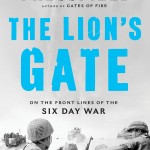In December of 2004, scientists from the Hawaii Underwater Research Lab discovered the sunken hulk of a seaplane called the Marshall Mars, one of six giant seaplanes built for the U.S. Navy by the Martin Corporation during World War II. After Pearl Harbor, industrialist Henry J. Kaiser responded to fears of Japanese submarines preying on American shipping by suggesting that his shipyards turn out a fleet of flying boats. He eventually teamed up with Howard Hughes to build the Spruce... Read more














